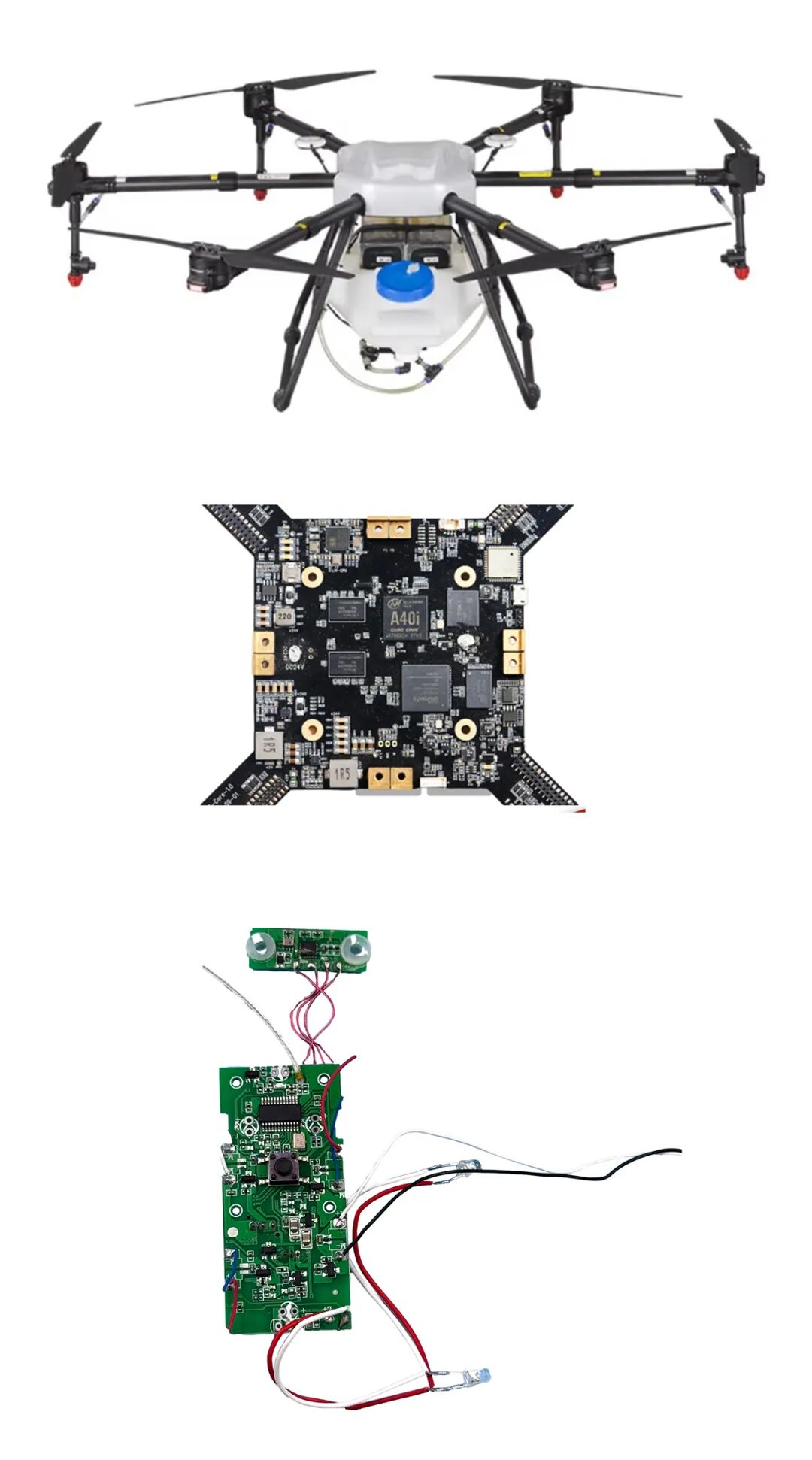Case IntroductionPCBA for Agricultural DronesFunction Overview1. Flight Control and Navigation
Flight Controller: As the “brain” of the drone, the flight controller integrates a microcontroller unit (MCU) that processes signals from sensors and executes flight tasks such as takeoff, hovering, route planning, and landing.
Inertial Measurement Unit (IMU): Includes accelerometers, gyroscopes, and magnetometers to monitor the drone’s attitude and position in real-time, ensuring stable flight.
GPS Module: Provides high-precision positioning information, supporting centimeter-level positioning and navigation to ensure accurate flight during agricultural operations.
2. Power System
Electronic Speed Controller (ESC): Controls the speed and direction of the motors, adjusting the power output based on commands from the flight controller.
Battery Management System (BMS): Monitors the voltage, current, and temperature of the battery, providing overcharge and over-discharge protection to extend battery life.
3. Communication and Data Transmission
Dual-Link Communication: Supports stable communication in local area networks and weak network environments, ensuring reliable control of the drone in complex environments.
Data Transmission Module: Supports rapid stitching and offline transmission of high-definition maps, facilitating team collaboration and data sharing.
4. Sensors and Intelligent Functions
4D Imaging Radar and Ground Penetrating Radar: Used to perceive obstacles and the surrounding environment, enabling automatic obstacle avoidance to ensure safe flight of the drone.
AI Intelligent Engine: Supports intelligent route planning and operations, automatically planning the best route based on field conditions, battery status, and pesticide levels.
5. Power Management
Efficient Power Management: Optimizes battery usage efficiency, ensuring stable power supply during prolonged operations.
Case Introduction
